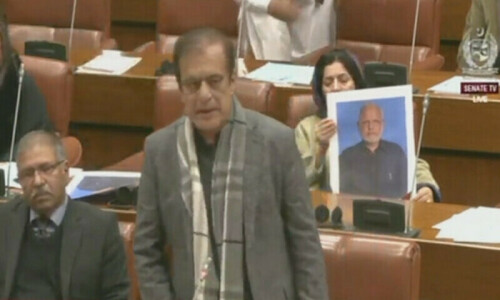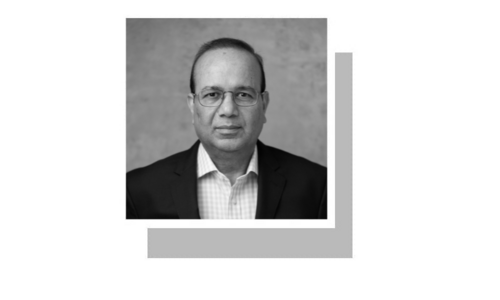A few months ago, I came across a (now infamous) YouTube video about changing demographics of the Muslim population in Europe. The tone was ominous as it warned of the dawning of an Islamicised Europe. In 39 years, the video claimed, France will be an Islamic republic. In 15 years, half the population of the Netherlands will be Muslim. In 2050, Germany, too, will be a Muslim state.
Although I was a bit skeptical about the authenticity of the statistics presented, I basically bought into the video’s premise – that a higher birth rate among Muslim immigrants would cause a marked shift in Europe’s demographics, making it predominantly Muslim. I’ll even admit a part of me swelled with pride at the prospect.
Even though I was aware that a Christian group had produced the video, I do not recall being offended by that initial viewing. But then the rebuttals and clarifications began. A new YouTube video put out by BBC’s Radio 4 titled ‘Muslim Demographics: The Truth’ exposed the alarmist agenda of the first clip by pointing out its liberal use of inaccurate data. And when the BBC news service evaluated the inauthenticity of the statistics, my eyes were fully opened to the strong Islamophobic message of the original video.
The growing problem of Islamophobia in the West is being increasingly documented. The trend is more pronounced in Europe than across the Atlantic, where it is thought that Muslims assimilate more readily. The demographics video may have been an amateur venture, it has coincided with the release of several bestselling books that implore Europeans to wake up and do something to save their culture and their continent. Interestingly, these pseudo-academic attempts have mostly emanated from American authors, apparently discontent with their own incursions into Muslim territories in Iraq and Afghanistan.
One such attempt by Christopher Caldwell titled Reflections on the Revolution in Europe: Immigration, Islam, and the West has received considerable attention in both the American and British media. It is startling to see how reviews of the book from across the pond could be so divergent. While The New York Times claims it is a balanced, thoughtful effort, the Guardian lambasts its unambiguous racial bias.
The contrast between North American and European perceptions of Islam has several explanations. The Europeans are a lot more sensitive and fidgety about the subject, with sentiments in Britain being especially volatile. The British National Party (BNP), for example, advocates for a return to the good old pre-1948 whites-only days and only falls short of calling whites a superior race. The party actively promotes alarmist views about the spread of Islam in Europe and calls for the deportation of Muslim subjects to their homelands, regardless of whether those subjects – many of whom have been born in Europe – had ever set foot outside the continent.
Parties like the BNP have started gaining impetus throughout Europe with their lightly veiled hatred towards the ‘other’ seeping into passive locals and manifesting itself towards Muslims, effectively making Muslims the Jews of this century. Antediluvian theories advocating social homogeneity have resurfaced as insecure Europeans are manipulated into thinking they must cling on to the last remnants of their dying culture through propagandist videos and literature that wouldn’t be out of place in Nazi Germany.
BNP-type, far-right groups are openly asking to repeal laws that make equal opportunity mandatory, effectively promoting discrimination. Even more alarming is their popularity. In recent elections, the BNP won three seats for the first time. With such open hostility towards Muslims, albeit in small segments of the population, what measures are European governments taking to allay fears within the Muslim community? The concept of second-rate citizens, after all, runs counter to fundamental western values of equality.
And while the debate within white-Europe rages, what of Muslim European sentiments? What of those who are being forced to decide between a religious and national identity in secular countries such as France? Nikolas Sarkozy, who claims to be a ‘demanding friend of Muslims,’ has proven to have littley sympathy with the concept of pardah. His latest battle is against body- and head-covering swimming attire for women – God forbid a woman should go for a swim in anything other than a bikini.
These strange reactions to Muslims in Europe make me reminisce about my days in primary school in Wales. Once a girl named Catherine called me a ‘Brownie’ in a conversation to a third person that I wasn’t even privy to. Within minutes, I had my whole class rally around me, giving me their support and completely shunning the girl for being racist. At the time, I myself never realised what the big deal was. But my 12-year-old friends were incensed. And if that’s how youngsters from a remote area where a non-white was an anomaly used to react a decade ago, how has the European landscape come to face such a regressive crisis?
On my recent visit to Manchester, I saw mosques with windows smashed in. Previous riots in Bradford, now popularly called ‘Bradistan’ for its large proportion of desis, may not have merely been racial in nature and may also have been fueled by Islamophobia. If Europe does not address these issues quickly and sensitively, this may well be the beginning of a slippery slope. With persecution, discrimination and racism to deal with, just how long will Muslims remain tolerant? How long before they start to flee? And who’s really to blame if they opt for the radical alternative?
Going over the evidence in search of a holistic perspective, I still fail to see how three per cent of the populace could threaten a whole people by their mere existence in the same geographical space. Let’s not forget, it’s not like Muslims forced their entry into mainland Europe. They came as legal immigrants because Europe needed their labor. Through citizenship, they have earned the right to better treatment.
Toronto-based Talha Zaheer blogs about diaspora-related issues for Dawn.com. He is also the Toronto FC correspondent for Goal.com.The views expressed by this blogger and in the following reader comments do not necessarily reflect the views and policies of the Dawn Media Group.














































